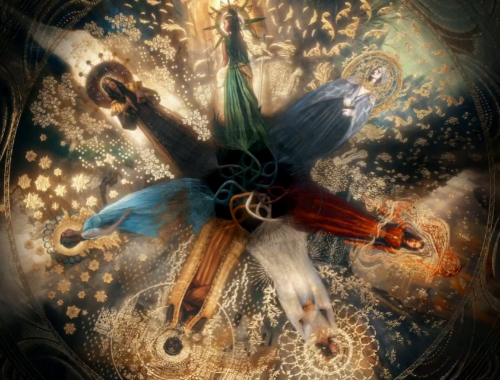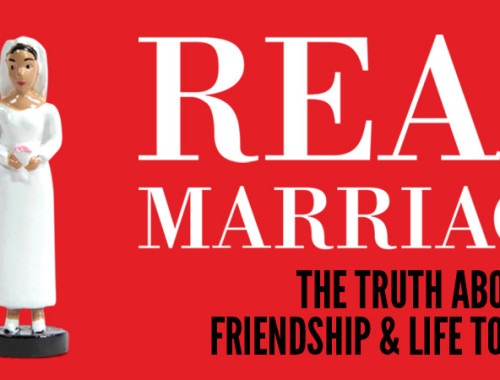Finally, Stasi’s moved past her obsession with beauty, at least for the moment.
She opens this section by arguing that the primary consequence of The Fall and The Curse is that women want to control and dominate. Which, ok, for the sake of argument I suppose I can give her that. I don’t have any real reason to argue with this interpretation of Genesis 3. I’d also argue that the same thing goes for men, as well—the curse that God gives them also has them fighting for control and dominance, so . . .
But, Stasi has a pretty narrow view of what “controlling” and “dominating” are (with examples like Mrs. John Dashwood from Sense and Sensibility), and she take an interesting approach to defining these terms: she defines them by what she believes is their opposite. In this book, that is vulnerability. In order not to be the conniving, manipulative women she holds up as examples (like Lady MacBeth), we have to be vulnerable. Vulnerability and tenderness is feminine, and feminine is good.
Controlling women tend to be very well rewarded in this fallen world of ours. We are the ones who receive corporate promotions. We are the ones put in charge of our women’s ministries. Can-Do, Bottom-Line, Get-it-Done kinds of women. . . . We have never considered that by living a controlling and domineering life, we are really refusing to trust our god. And it has also never dawned on us that something precious is squelched, diminished, and refused.
To be clear, I don’t think Stasi is condemning women who get promotions and lead women’s ministries. However, she does condemn a particular kind of woman who earns these things. The “Can-Do, Bottom-Line, Get-it-Done” woman. Now, perhaps I’m reading Stasi incorrectly and I’m hearing something else in these words, but as one of those authors who believes that it’s my job to communicate, I’m going to go with it.
I describe my best friend as “The Competent Beast Who Gets Shit Done” (competent being my favorite compliment since reading Fascinating Womanhood). She is a brutally efficient organizer, and I’ve seen her pull off unbelievable things like she’s Mary Poppins. She is straight-talking, and commanding, and it is, honestly, awe-inspiring.
She also has trouble being vulnerable. I can count the number of times she’s been vulnerable with me on one hand. She’s always honest, and she’ll tell you what she’s feeling, but I don’t think I’d ever describe her as vulnerable. Or tender. She is an Amazon. A shield-maiden.
One of the most fascinating things about my best friend is that while she is basically Wonder Woman made flesh, she is also one of the more stereotypically feminine women I know. She loves baking, and interior design. Her favorite motif is bows, and she has “Hello Kitty” stuff all over her car.
And Stasi has spent the last seven pages telling me that my best friend is Lady MacBeth.
Uhm… no.
There is more than one kind of woman in the world, Stasi. You’d think I wouldn’t have to say that, considering she said that on page x, but apparently, it bears repeating. My friend is all of the “controlling” and “dominating” things Stasi has described, but she is still a woman, and nothing Stasi can say will ever convince me that my friend is this way because of The Curse.
She moves on to talking about “desolate” women:
Desolate women are ruled by the aching abyss within them … they are consumed by a hunger for relationship …
Desolate women also tend to hide their true selves. We are certain that if others really knew us, they wouldn’t like us—and we can’t risk the loss of a relationship. (55)
We hide behind our makeup. We hide behind our humor. We hide with angry silences and punishing withdrawals. We hide our truest selves and offer only what we believe is wanted, what is safe. We act in self-protective ways and refuse to offer what we truly see, believe, and know … And so by hiding, we take matters into our own hands. We don’t return to god with our broken and desperate hearts. (57)
I’ve known people a bit like what Stasi is describing here, and I could see myself in this section (at times), so I understood where she was coming from more with this. However, she illustrates her point by saying these women read books like Men Who Hate Women and the Women who Love Them.
Because God forbid a woman read books about abusive relationships and domestic violence and how to escape them. That would be the absolute worst. That would be an example of her being desolate and “ruled by the aching abyss.”
And … Samantha Throws the Book Across the Room Time #4.
Way to condemn one of the most valuable resources that abused women have, Stasi. That sentence might have actually killed women, who after reading this book and listening to her, they throw out resources about misogyny and abuse and attribute all of their problems to some “aching abyss” they have.
And not only that, I am frustrated by how Stasi and John are insistent that patriarchy and misogyny don’t exist. Almost everything that Stasi described in this half of the chapter has its roots in the damaging messages of patriarchy that both men and women receive.
She describes Lady MacBeth in the absolute worst of terms, and she quotes the line when Lady MacBeth asks the gods to “’unsex her,’ to remove her femininity so that she can control the fate of the man in her life, and thus secure her own fate.”
To me, that screams patriarchy. Lady MacBeth, as a woman, had no control over her own life. Not who she married, not who her children married, not where she lived, not even if she continued to live. Everything in her life was decided by the men who ruled over her in the starkest and most literal terms, so she tries to wrest whatever sliver of authority she can, and it turns out that her husband is actually pretty open to her manipulation. I’m not praising Lady MacBeth, but I do understand her. But Stasi doesn’t see that. It’s like she’s blind. Patriarchy can’t possibly exist, so all of the evidence that it does has to be attributed to something else.
In Stasi’s world, that “something else” is usually women.
Five gold stars for people who know how the image at the top fits with today’s post, because I’m a geek like that. Also, my first YouTube video is up! Subscribe, share, all that!



